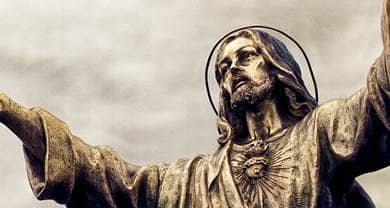- Trending:
- Pope Leo Xiv
- |
- Israel
- |
- Trump
- |
- Social Justice
- |
- Peace
- |
- Love

RELIGION LIBRARY
Lutheran
Human Nature and the Purpose of Existence
If you rank the opinions that famous Christians held of human nature from high to low, Luther's opinion would be at the very bottom of the scale (along with Augustine's and John Calvin's). For Luther, human nature was created good by God, but has been totally corrupted by sin. It is not merely that we lack the will power to do what we know is right, although that is certainly true. But our senses and our reason are also corrupted, and so our judgment of right and wrong is also unreliable. There are Christians who have held that God would not give laws in the Bible (the Ten Commandments, for example), and publish us for violating them, if it were not possible for us to fulfill them successfully. Pelagius was one such Christian, and in a different sense Roman Catholics and Methodists have made a similar case. (They would at least make human ability dependent on the gift of forgiveness and additional outpourings of divine grace.) Luther would have none of it. The first role of the law in the Bible was to convict us, to make us realize we were incapable of fulfilling it, to break down our trust in our own abilities. (Luther did not associate the law with the Old Testament and the promise with the New Testament. He had a more dynamic view of law and gospel. Depending on your context, any biblical text, either Old Testament or New Testament, could count as law if it convicted you of your own inabilities, or as gospel, if it reassured you of God's forgiveness.)
This low view of corrupted, sinful human nature applied, for Luther, not just to the damned, but also to the saved. Those chosen by God for forgiveness are no better than those chosen for damnation-they remain sinners, but forgiven ones.
For Luther what was at stake was divine omnipotence. Any amount of self-reliance for salvation takes away from the power and glory of God, and our reliance on God. This often makes modern people uncomfortable, because it runs against our assumptions about humans as agents creating to some extent their own lives and history, and against our assumptions about responsibility. But it is critical to understanding the Reformation that this is precisely the message that struck people as a great relief. Luther was confident that if his salvation rested in his own hands he would probably fail. He was much better off if it rested completely in God's hands. One factor in the rapid spread of the Reformation is that, in a time of religious unease, many Europeans agreed with him.
The purpose of existence for Lutherans, as for most Christians, is to glorify God and to live in God's presence, not separated from God. This is true in this life, but especially true in the life to come, where the goal is to live eternally in heaven. Since God cannot tolerate sin, those who die without the forgiveness for sin will not be able to enter heaven.
Because of his low opinion of human nature, Luther did not believe it was possible for humans to become entirely sinless, or earn enough merit to outweigh original or specific sins. Luther used the analogy of medieval marriage law here. Couples entering marriage in Luther's day took possession of each other's property (in other words they could use it as though it were their own), but in cases of death or divorce their property remained their own. This is different than most modern marriage law, in which property is shared, goes to the surviving spouse at death, and is divided upon divorce (barring a pre-nuptial agreement). Faith, for Luther, was like a marriage in which believers take possession of Christ's property, which is righteousness, and Christ takes possession of their property, which is sin. But this is, in a sense, a legal fiction: the sin is still the property of the faithful, and the righteousness is still the property of Christ. Christ's sacrifice covers or hides or forgives our sin, but does not cleanse it. In this way God relates to us as though we were as righteous as Christ, and this is the goal of our existence.










